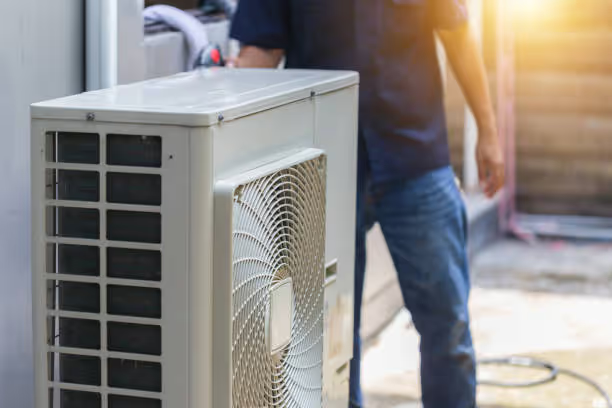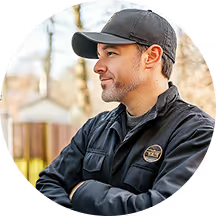Furnace Repair in Mt Sinai, NY
A reliable furnace is essential for Mt Sinai homes, where coastal Long Island winters can bring sustained cold, humidity swings, and salt-air corrosion that accelerate wear on heating systems. If your furnace is making unusual noises, failing to heat consistently, cycling on and off, or showing signs of incomplete combustion, prompt professional furnace repair preserves comfort and protects your family from safety risks like carbon monoxide exposure.

Common furnace issues in Mt Sinai homes
Local climate and housing stock influence the most frequent repair calls in Mt Sinai. Expect these problems during pre-winter and mid-winter seasons:
- Igniter or pilot failure: age-related electrical or flame-sensing problems that prevent ignition.
- Dirty or clogged burners: coastal dust and household particulates reduce combustion efficiency.
- Thermostat miscalibration or wiring faults: poor temperature control, short cycling.
- Blower motor or capacitor failure: weak airflow, overheating, or loud humming.
- Airflow restrictions from filters and duct debris: uneven heating and increased system strain.
- Combustion and exhaust problems: flue blockages, rusted heat exchangers, or venting issues common in older Long Island homes.
How a professional diagnostic typically proceeds
A methodical diagnostic separates simple fixes from repairs that require parts replacement. Expect these steps during a standard furnace diagnostic:
- Visual inspection of the furnace cabinet, burners, and combustion chamber for corrosion, soot, or leaks.
- Verify thermostat settings and wiring continuity.
- Test ignition system components: igniter or pilot assembly, flame sensor, and gas valve operation.
- Measure gas pressure and burner flame patterns for proper combustion.
- Inspect blower assembly, belt condition, motor amperage draw, and capacitor health.
- Check air filter condition, return vents, and basic duct integrity for airflow problems.
- Perform safety checks including combustion analysis and carbon monoxide testing.
Technicians will explain findings in plain language and outline repair options by urgency and expected outcomes.
Troubleshooting key components
Below are common component problems and what a qualified technician will evaluate and address:
- Igniters and flame sensors
- Symptoms: furnace fails to ignite, repeated attempts, or short cycling.
- What technicians do: test resistance and ignition voltage, clean or replace flame sensor, inspect pilot assembly on older units, and ensure stable electrical supply.
- Burners and combustion
- Symptoms: yellow or lifted flame, excessive soot, odors, or lower heat output.
- What technicians do: clean burners, tune gas pressure, realign burner ports, and inspect the heat exchanger for cracks or corrosion.
- Thermostats and control systems
- Symptoms: inconsistent temperatures, system won’t respond, or frequent on/off cycles.
- What technicians do: verify thermostat calibration and wiring, test control board responses, and recommend smart thermostat upgrades when helpful for efficiency and diagnostics.
- Blower motors and airflow
- Symptoms: poor airflow, unusual noises, or overheating trips.
- What technicians do: test motor amperage, check capacitors and bearings, clean blower wheel, and inspect belts and wheel alignment. Improvements to filter quality and duct sealing are often recommended.
Emergency response and same-day service logistics
In Mt Sinai, furnace failures during cold snaps are urgent. Emergency response typically follows a triage workflow:
- Rapid intake: technicians collect system make/model, symptom description, and safety concerns.
- Prioritization: issues involving no heat, suspected combustion leaks, or CO alarms receive immediate attention.
- Arrival window: same-day service is arranged based on technician availability, weather, and parts needs. Be prepared with access to the furnace area, thermostat, and any recent service history to speed diagnosis.
Technicians will perform an initial safety triage on arrival and recommend temporary measures if immediate full repair isn’t possible that day.
Expected repair timelines
Repair time depends on the root cause and parts availability:
- Minor repairs (sensor cleaning, thermostat calibration, filter replacement): typically resolved within one service visit.
- Component replacements (igniter, flame sensor, blower capacitor): often completed same day if parts are on the service vehicle; otherwise next-day once the correct parts arrive.
- Major repairs (heat exchanger replacement, complex control board issues, major burner work): may require longer scheduling and coordination, especially for older or uncommon models.Technicians will provide a clear timeline after diagnosis and prioritize safety-related items first.
Parts replacement policies and documentation
Professional repair services commonly follow these practices:
- Use of manufacturer-recommended or OEM-equivalent parts for long-term reliability.
- Written repair estimates and a clear explanation of what parts and labor are included.
- Parts and labor warranty information provided in writing; policies may differ by part and manufacturer.
- Transparency about when replacement is more cost-effective than continued repair, especially for systems nearing end of expected service life.
Pricing and estimates (what to expect)
Rather than providing fixed prices, reputable repair professionals offer:
- A written, itemized estimate after on-site diagnosis outlining labor, parts, and any recommended follow-up work.
- Explanations of cost drivers such as parts rarity, system age, and complexity of accessing components.
- Options for prioritizing fixes (safety-critical, comfort-focused, and deferred) so homeowners can make informed decisions.
Safety checks: carbon monoxide and combustion inspection
Safety testing is a non-negotiable part of thorough furnace repair:
- Carbon monoxide (CO) testing: measurement of CO levels at the furnace and in living spaces when warranted. Any elevated CO triggers immediate shutdown and repair protocols.
- Combustion analysis: checks for correct air-to-fuel ratio and efficient burner operation to prevent soot buildup and unsafe combustion products.
- Heat exchanger inspection: visual and diagnostic checks for cracks or corrosion that can allow combustion gases into the home’s air.Technicians will document safety results and advise on remediation steps until the system is safe to operate.
Preventive tips and long-term benefits of timely repair
Regular attention reduces emergency breakdowns and extends system life:
- Replace filters monthly or per the manufacturer during heavy-use months to maintain airflow.
- Schedule annual tune-ups before winter to catch corrosion and combustion issues early.
- Consider upgrading thermostats or controls to improve efficiency and reduce wear from short cycling.
- Keep the furnace closet clear and ensure outdoor vents are free from debris and snow during storms.
Timely professional repair restores comfort, reduces energy waste, and minimizes safety risks in Mt Sinai’s climate.
ConclusionWhen a furnace problem appears in Mt Sinai, NY, a systematic professional approach—starting with a safety-focused diagnostic and moving through targeted repairs and documented safety checks—resolves most issues efficiently. Local environmental factors like coastal air and older home systems make proactive inspections important. Clear estimates, transparent parts policies, and prioritized timelines help homeowners choose the right repair path for safety, comfort, and long-term value.
Customer Testimonials
Hear directly from homeowners who trust Bobby O’s HVAC Inc. for fast response times, honest service, and lasting comfort.











